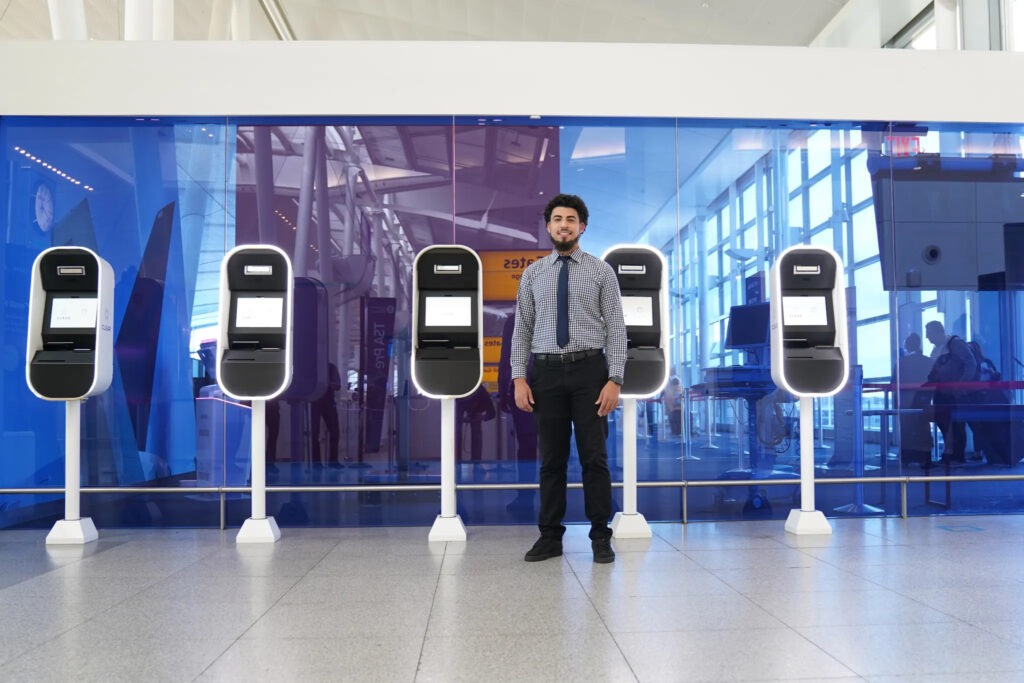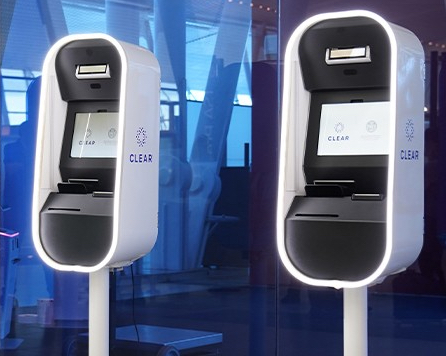Advertiser & Editorial Disclosure: The Bulkhead Seat earns an affiliate commission for anyone approved through the links below. This compensation may impact how and where links appear on this site. We work to provide the best publicly available offers to our readers. We frequently update them, but this site does not include all available offers. Opinions, reviews, analyses & recommendations are the author’s alone, and have not been reviewed, endorsed, or approved by any of these entities.
Bloomberg published a story today around an incident from July 2022 that has called into question the security and procedure for using CLEAR at the airport. I’ve written a bit about how the TSA is looking to add ID checks for CLEAR members (more here). At the time, no details were known about what prompted this, but now we have the story.

According to the Bloomberg article, CLEAR allowed a passenger to carry ammo and pass through security under a false name at Ronald Reagan Washington National Airport (DCA) last July. The ammunition was found when his bags were scanned at security. Police were called and they found that the the man was using a false identity.
While CLEAR claims this incident has sparked the TSA’s concern, there might be a bit more at play in their eyes. The main concern with the TSA seems to center around enrollment photos clarity. Several images were not clear, focused on a chin or forehead, or had the individual wearing a mask. The CLEAR system always requires a match to boarding pass/enrollment data and when there is an issue, a manual verification is performed (similar to how the TSA manually matches IDs with faces). The TSA found nearly 49,000 CLEAR members who were flagged by facial recognition software as non-matches (about 1% of CLEAR members). After this finding, CLEAR took immediate action to end the practice that led to the human error and took corrective action to fully reenroll the small percentage of its customers enrolled under this process. In the last six months alone, the TSA has reverified 4.7 million IDs without citing a single issue.

This one incident has caused an interesting rift between the government agency and the publicly traded company. What I have always loved about CLEAR was that I could leave my ID in my wallet and quickly be waived through security. CLEAR has said that it will still be automated in a statement they recently sent me:
The rate at which random ID checks occur has varied over the years based on a number of factors, similar to TSA’s own practice of randomization in their screening activities. TSA will continue to employ varied randomization rates as part of their normal security processes.Consistent with TSA’s long term roadmap, CLEAR has been collaborating with DHS and TSA since 2020 to implement new industry wide digital identity standards. The implementation of these new standards will digitally transmit a passenger’s identifying information from CLEAR to next-generation TSA hardware at airport checkpoints and avoid any need for passengers to show their IDs. We look forward to rolling this out in the future to create an even more seamless, secure traveler experience while avoiding disruption for passengers as travel continues to surge.”
Anthony’s Take: One isolated incident seems to have caused a major skirmish here. Per CLEAR, it has screened over 130 million travelers over 13 years. I side with CLEAR as the technology does not seem to be flawed. The ID checks and the fact that an agent still is in place before security seems sufficient. Of course, extra caution is never a bad thing when it comes to air safety, but I hope the TSA and CLEAR are able to find a way to avoid having to show ID every time.
(Image Credits: CLEAR.)
User Generated Content Disclosure: The Bulkhead Seat encourages constructive discussions, comments, and questions. Responses are not provided by or commissioned by any bank advertisers. These responses have not been reviewed, approved, or endorsed by the bank advertiser. It is not the responsibility of the bank advertiser to respond to comments.
Advertiser & Editorial Disclosure: The Bulkhead Seat earns an affiliate commission for anyone approved through the links above This compensation may impact how and where links appear on this site. We work to provide the best publicly available offers to our readers. We frequently update them, but this site does not include all available offers. Opinions, reviews, analyses & recommendations are the author’s alone, and have not been reviewed, endorsed, or approved by any of these entities.
